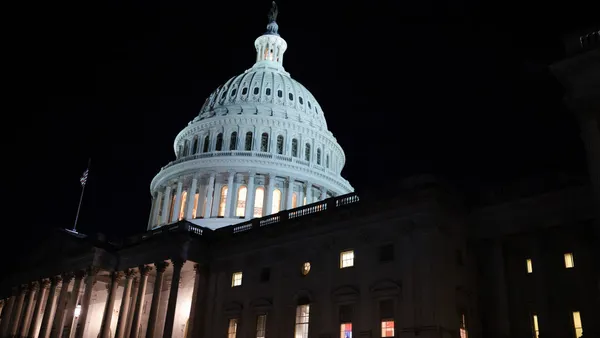Quick Facts
HP Inc.
-
Chief diversity officer:
Lesley Slaton Brown
-
Total employees:
55K
-
Social investments:
$4.38M
Board of directors:
HP boasts a board comprised of four women – as of Dec. 4 – and five minority members, three of which are underrepresented minorities. Compared to other Silicon Valley companies, HP's board has one of the highest representation of women.
Women in tech:
About 21% of technical and engineering roles at HP are filled by women.
Outlook:
In 2016, approximately 16,800 women were trained through HP's "worker well-being programs."
Diversity is the tech world's phantom — elusive and possibly even feared. But when diversity can be found, it's inspiring.
For Silicon Valley, diversity is a neglected task. It's oftentimes disparagingly called a social issue, but the absence of diversity only highlights the seemingly formulaic approach to hiring a predominantly white, male workforce.
Quantifying the disparities in the tech world will help resolve them because numbers can often make people pay attention when words cannot.
Some companies are proving their progress in diversity and inclusion with concrete evidence. HP Inc. is actively addressing the diversity crisis, making it CIO Dive's company of the year for diversity.
"HP is hiring, and talent is our only criteria," Lesley Slaton Brown, HP's chief diversity officer, told CIO Dive in an email.
HP has a legacy to uphold and does so through engineering a "talent pipeline in K-12" to ensure a broad range of talent that will one day join the HP or technical workforce. Additionally, the company's social commitment through volunteer initiatives like Hour of Code during Science Education Week works to ignite the technical interest of younger generations.
Ultimately, "employers are hiring individuals, they're not hiring demographics," Nancy Curtis, VP of content at Logical Operations, told CIO Dive. But the dilemma remains in the structure of an industry that fails to equally represent gender and race.
Data
Diversity disparities in major tech companies
About 84% of the U.S. tech workforce say companies care about attracting and retaining diverse candidates, yet less than half said their companies deploy initiatives to diversify the workforce, according to a 2017 Indeed report.
Still, approximately 44% of female tech workers have experienced "non-inclusive behavior" that resulted in discomfort at their current workplace.
Oftentimes, non-inclusive actions are reserved for women and minorities, making the diversity challenge "a race without a finish line," said Curtis.
After her 20-plus years in the technical industry, Curtis said her experiences have been reflective of an "egalitarian culture" but admits the technology industry "historically has skewed to be more male."
Because of this skew, tech companies often believe hiring processes cannot be sexist if there are fewer women in the candidate pool. But without an open door or set guidelines, that skew will never be resolved, James Collins, CIO of the state of Delaware, told CIO Dive.
"If you fit into the mold of the majority, when you walk in the room, there's this presumption of competence," said Collins. "And if you don't fit in, there's this presumption of incompetence until you provide overwhelming evidence that you are competent." And that is "really unfair."
To "erode bias," companies need to disrupt that approach, according to Collins, and that disruption at HP originates from its leadership.
Through its "unconscious bias training program," HP began retraining those responsible for talent acquisition to refrain from natural biases that arise with societal norms.
"Ultimately, we want potential and current employees to be viewed as more than just numbers — we want them to be seen in a more personal, illustrative and human way. Our goal is for people to bring their whole selves into the workplace," said Slaton Brown.
The same is true for promoting a hollow message. Even marketing campaigns fail to reflect their goals, said Collins. But he commends HP for maintaining a consistent message through its marketing efforts.
HP's "Reinvent Mindsets" campaign was designed to "raise awareness of the ingrained and subtle biases that exist in the hiring process for women and underrepresented groups," said Slaton Brown.
Diversity in culture and demographics is oftentimes synonymous with diversity of thought, thus promoting further innovation. The tech industry has some ways to go, but HP proves change is possible.
Looking Forward
Diversity is not limited to gender and race and also includes religion, sexual orientation and disability. Highlighting the degrees of the diversity spectrum will eventually "open our minds to something we haven't seen or experienced before," according to Collins. HP continues its progress with a business school challenge and internship program for historically black colleges and universities.














